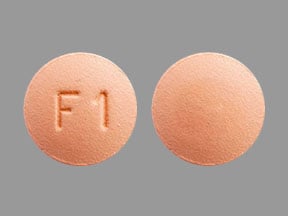Finasteride is a medication prescribed for different purposes depending on its dosage. At a 5 mg dosage, it is used to treat benign prostatic hyperplasia (BPH) in adult men by reducing prostate size. This helps alleviate symptoms such as frequent urination, difficulty in starting urination, and the sensation of incomplete bladder emptying. It works by decreasing levels of dihydrotestosterone (DHT), a hormone responsible for prostate growth. Although effective in managing BPH symptoms, finasteride is not approved for prostate cancer prevention and may slightly increase the risk of developing a serious form of prostate cancer. Women and children should not use this medication.
In a 1 mg dosage, finasteride, sold under the brand name Propecia, is used to treat male pattern baldness (androgenetic alopecia) in adults. This formulation works by inhibiting the enzyme 5-alpha reductase, which converts testosterone to DHT. By lowering DHT levels in the scalp, it helps reduce hair loss and promotes hair growth. Finasteride is taken orally once a day and requires a prescription. Potential side effects include sexual dysfunction, such as reduced libido and erectile issues. Always consult with a healthcare provider to understand the benefits and risks before starting finasteride.
Our coupons are free to use. Before paying, show the pharmacist your Finasteride savings card to get your free discount. Use our filters below to edit the prescription box to match your needs. The Finasteride prices will update based on your prescription needs. Above our Finasteride coupons, you can change your location to see pharmacy prices and costs in other areas. We're here to help you buy Finasteride at the lowest price with our prescription discount card.
My prescription
Edit
1MG, Finasteride (30 Tablets)
Select pharmacy

CVS
$19.17
COUPON PRICE
Walmart
$3.93
COUPON PRICE
Walgreens
$10.41
COUPON PRICE
Albertsons
$11.59
COUPON PRICEFinasteride savings card
Show this card to your pharmacist
Walmart
$3.93
BIN
ID
PCN
GRP
019876
LH03E0BBD8
CHIPPO
LHX
Powered by
Finasteride is a medication prescribed for different purposes depending on its dosage. At a 5 mg dosage, it is used to treat benign prostatic hyperplasia (BPH) in adult men by reducing prostate size. This helps alleviate symptoms such as frequent urination, difficulty in starting urination, and the sensation of incomplete bladder emptying. It works by decreasing levels of dihydrotestosterone (DHT), a hormone responsible for prostate growth. Although effective in managing BPH symptoms, finasteride is not approved for prostate cancer prevention and may slightly increase the risk of developing a serious form of prostate cancer. Women and children should not use this medication.
In a 1 mg dosage, finasteride, sold under the brand name Propecia, is used to treat male pattern baldness (androgenetic alopecia) in adults. This formulation works by inhibiting the enzyme 5-alpha reductase, which converts testosterone to DHT. By lowering DHT levels in the scalp, it helps reduce hair loss and promotes hair growth. Finasteride is taken orally once a day and requires a prescription. Potential side effects include sexual dysfunction, such as reduced libido and erectile issues. Always consult with a healthcare provider to understand the benefits and risks before starting finasteride.
Our coupons are free to use. Before paying, show the pharmacist your Finasteride savings card to get your free discount. Use our filters below to edit the prescription box to match your needs. The Finasteride prices will update based on your prescription needs. Above our Finasteride coupons, you can change your location to see pharmacy prices and costs in other areas. We're here to help you buy Finasteride at the lowest price with our prescription discount card.
Finasteride (Propecia) dosage forms
Use our Finasteride (Propecia) 1MG coupon with prices from $97.47 for 30 Tablets. You can also use our Finasteride (Propecia) 1MG coupon with prices from $213.94 for 60 Tablets. We have a Finasteride (Propecia) 1MG coupon with prices from $330.40 for 90 Tablets. You can use our Finasteride (Propecia) 1MG coupon with prices from $369.22 for 100 Tablets.
Dosage Quantity Price from Per unit 1MG 30 Tablets $97.47 $3.25 1MG 60 Tablets $213.94 $3.57 1MG 90 Tablets $330.40 $3.67 1MG 100 Tablets $369.22 $3.69 1MG 180 Tablets $658.66 $3.66
| Dosage | Quantity | Price from | Per unit |
|---|---|---|---|
| 1MG | 30 Tablets | $97.47 | $3.25 |
| 1MG | 60 Tablets | $213.94 | $3.57 |
| 1MG | 90 Tablets | $330.40 | $3.67 |
| 1MG | 100 Tablets | $369.22 | $3.69 |
| 1MG | 180 Tablets | $658.66 | $3.66 |

